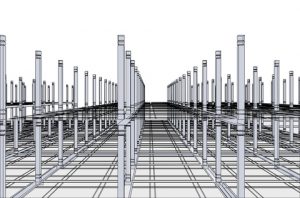
The COVID-19 Coronavirus is responsible for millions of words that would never have been written in its absence, even ours today. We have no special understanding of this virus or its impact. So, don’t expect us to add to two clear aspects: general confusion and uncertainty. Instead, we’re going to Ruminate about allocating risk and assigning responsibilities in situations where no party is at fault.
In our leases, we already accept that risk is and can be allocated for events, not in the control of a party. Think about negotiated provisions dealing with a loss of electricity or a temporary roadblock. [Read more…]
Print It doesn’t matter what we call the space, “Premises,” “Demised Premises,” “Leased Space” or whatever, but what matters is how we define it AND THEN what we do with it. And, when it comes to defining and then using what Ruminations will call the “Leased Space,” our industry doesn’t always do a very good job.
It doesn’t matter what we call the space, “Premises,” “Demised Premises,” “Leased Space” or whatever, but what matters is how we define it AND THEN what we do with it. And, when it comes to defining and then using what Ruminations will call the “Leased Space,” our industry doesn’t always do a very good job.

Recent Comments